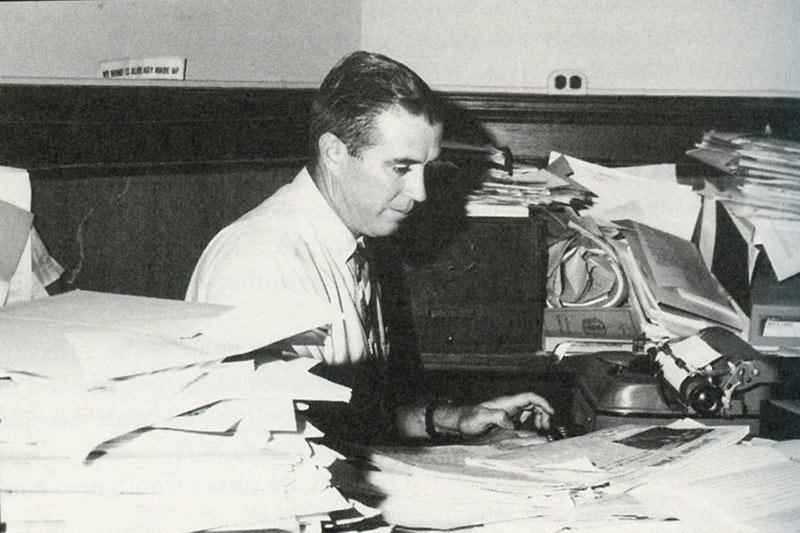A career worthy of documenting
Wilson “Bill” Minor, a 1943 graduate of Tulane University, returned from World War II to find himself on a new kind of battleground. He became the Mississippi correspondent for the Times-Picayune where he recorded decades of racial tension. Now, there’s a documentary, Eyes on Mississippi, that chronicles his life and career.
“Bill wrote so very beautifully,” said Plater Robinson, director of the Southern Institute for Education and Research at Tulane University. “He wrote evenhandedly when that was a dangerous occupation.”
A screening of the film was held on the uptown campus Sunday afternoon.
“He was an eye witness to everything and had a personal relationship with so many of the main characters in Mississippi’s narrative.”
Ellen Ann Fentress, documentary director
Minor, at 94, writes columns that appear in newspapers such as The Clarion-Ledger in Jackson, Mississippi. Although illness forced him to remain in Jackson for the screening, he was represented by his son Paul Minor, who thanked documentary director Ellen Ann Fentress.
“This screening means so much to me and to Bill, since he got his start here at Tulane,” Fentress said. “He was an eye witness to everything and had a personal relationship with so many of the main characters in Mississippi’s narrative.”
Eyes on Mississippi is a snapshot of racially charged crimes from 1947 to 1964. It begins with the execution of Willie McGee, a black man accused of raping a white woman. The film continues with the lynching of Emmett Till, the Ole Miss riot of 1962, and the murder of activist Medgar Evers. The documentary concludes after seven members of the Ku Klux Klan are found guilty of the murders of three civil rights workers, yet sentenced to only three to 10 years each.
Fentress is currently raising money to release the film on DVD.
She collected 40 hours of footage and visited 17 different archives to create the documentary, but she considers the project unfinished. “I’m really hoping to do a second half with the Voting Rights Act of 1965,” Fentress said. “This is a story that still needs to be told.”
Jamie Logan is a senior majoring in English and classical studies with a minor in psychology at Tulane University.
Related content: Witness to history

